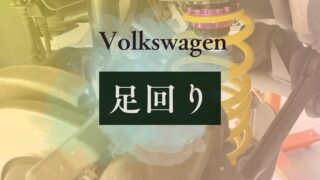Volkswagen (VW) vehicles are admired worldwide for their reliable engine performance and durability.
At the core of this reputation is a critical engine component: the timing belt.
The timing belt synchronizes the crankshaft and camshaft, ensuring optimal combustion and engine power.
It is a wear item and must be replaced at regular intervals. If neglected, timing belt failure can lead to catastrophic engine damage and extremely high repair costs.
This article explains common symptoms, causes, risks, repair costs, and preventive maintenance for timing belt issues in VW vehicles.
VW Engine Problem Guides
What Is a Timing Belt?
A timing belt links the crankshaft (engine rotation) and camshaft (valve operation), keeping valve timing precise for efficient combustion.
If the belt snaps or slips, the pistons and valves collide, causing severe engine damage.
Most VW models use timing belts, though some newer small turbo engines use timing chains.
Common Symptoms of VW Timing Belt Failure
Watch for these warning signs:
1. Strange Engine Noises
A worn belt or bad tensioner may cause a rattling or scraping sound near the engine.
2. Rough or Unstable Idling
A loose or misaligned belt may cause fluctuating RPM and excessive engine vibration.
3. Poor Acceleration
If timing drifts, engine power decreases and acceleration feels sluggish.
4. Check Engine Light
Sometimes triggered by timing irregularities or combustion abnormalities.
5. Sudden Engine Failure
A snapped belt causes instant engine shutdown and could result in serious safety risks or costly repairs.
Causes of Timing Belt Problems in VW Vehicles
• Aging and Wear
Timing belts typically deteriorate after 5–7 years or 60,000–100,000 km (depending on model).
• Tensioner or Water Pump Failure
Tensioner breakdown or water pump failure (if belt-driven) can compromise belt performance.
• Oil Leaks
Leaking oil onto the belt softens and weakens it, accelerating wear.
• Incorrect Installation
Improper belt installation during previous service can lead to premature failure.
Risks of Ignoring Timing Belt Problems
Neglecting a worn timing belt can cause:
Failure to replace the belt on schedule can easily turn a maintenance job into a financial disaster.
Typical VW Timing Belt Repair Costs
| Service | Estimated Cost (incl. tax) | Notes |
|---|---|---|
| Timing belt only replacement | ¥60,000–100,000 ($400–670) | Minimum service |
| Timing belt + tensioner kit | ¥80,000–120,000 ($540–800) | Common recommendation |
| Timing belt + water pump | ¥100,000–150,000 ($670–1,000) | Strongly recommended combo |
| Engine rebuild after belt failure | ¥300,000–600,000 ($2,000–4,000) | May exceed vehicle value |
Although labor-intensive, adding a water pump and tensioner kit ensures long-term reliability.
DIY Tips for Prevention
You can avoid timing belt failure with proactive care:
• Track Mileage and Age
Plan replacement at 5 years or 60,000–100,000 km, whichever comes first.
• Listen for Unusual Engine Noises
Rattling or whining near the engine may signal belt or tensioner problems.
• Check for Oil Leaks
Ask for inspections around the engine bay during oil changes or routine service.
• Never Exceed Recommended Replacement Intervals
Don’t gamble with “it should still be fine.” Replace it promptly to avoid costly engine damage.
Conclusion: Protect Your VW Engine with Proper Timing Belt Maintenance
The timing belt is hidden deep inside your VW’s engine, yet its role is critical to vehicle performance and longevity.
Failing to replace it at the proper time can destroy your engine and cost thousands in repairs.
Early intervention ensures a long, smooth driving experience with minimal risk of breakdown.
Stay proactive with timing belt maintenance and your VW will reward you with years of dependable performance.
VW Engine Problem Guides








コメント